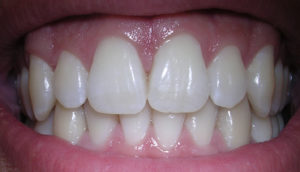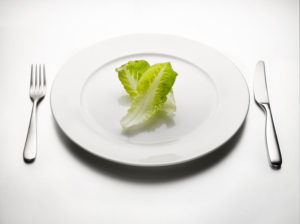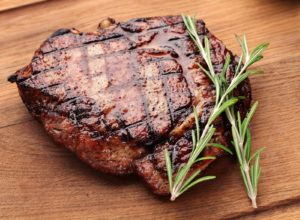If taking Clostridia as a probiotic for food allergies works, it would be amazing for food allergy sufferers. Very exciting research. From Time:
The Bacteria That May One Day Cure Food Allergies
Every round of antibiotics a person takes will wipe out strains of bacteria inside the body, some of which are eliminated forever. Considering how early and how often antibiotics are administered to kids—coupled with our increasingly antimicrobial lifestyles—we’ve become more prone to allergies and other ailments, the hygiene hypothesis goes. There’s no cure for food allergies, just lifestyle adjustments and abstention. But Nagler and her team may have the germ of an idea for treatment using gut bacteria, according to a new mice study published in the Proceedings of the National Academy of Sciences.
The team dosed two groups of mice with peanut allergens. One group of mice had been bred to be entirely without gut germs; the other group had sparsely populated gut bacteria due to treatment with antibiotics. Both groups of mice had higher levels of the allergen in their bloodstream compared to mice with healthy gut-bacteria populations.
After giving those same mice a mix that contained the bacteria strain Clostridia, their allergen levels plummeted. Infusing the mice with another group of intestinal bacteria, Bacteroides, didn’t help—so the researchers think the effect is special to Clostridia. “These bacteria are very abundant and they reside very close to the epithelial lining, so they’re in intimate contact with the immune system,” Nagler says.
Next, they’ll transfer gut bacteria from food-allergic infants and healthy infants into germ-free mice, Nagler says. “If we give back Clostridia to a mouse that has the bacteria of an allergic child, can we now reverse susceptibility in that mouse?”
This is a more in-depth article of the research. From Science Daily:
Gut bacteria that protect against food allergies identified
The presence of Clostridia, a common class of gut bacteria, protects against food allergies, a new study in mice finds. The discovery points toward probiotic therapies for this so-far untreatable condition. Food allergies affect 15 million Americans, including one in 13 children, who live with this potentially life-threatening disease that currently has no cure, researchers note.
Although the causes of food allergy -- a sometimes deadly immune response to certain foods -- are unknown, studies have hinted that modern hygienic or dietary practices may play a role by disturbing the body's natural bacterial composition. In recent years, food allergy rates among children have risen sharply -- increasing approximately 50 percent between 1997 and 2011 -- and studies have shown a correlation to antibiotic and antimicrobial use.
"Environmental stimuli such as antibiotic overuse, high fat diets, caesarean birth, removal of common pathogens and even formula feeding have affected the microbiota with which we've co-evolved," said study senior author Cathryn Nagler, PhD, Bunning Food Allergy Professor at the University of Chicago. "Our results suggest this could contribute to the increasing susceptibility to food allergies."
To test how gut bacteria affect food allergies, Nagler and her team investigated the response to food allergens in mice. ...This sensitization to food allergens could be reversed, however, by reintroducing a mix of Clostridia bacteria back into the mice. Reintroduction of another major group of intestinal bacteria, Bacteroides, failed to alleviate sensitization, indicating that Clostridia have a unique, protective role against food allergens.
To identify this protective mechanism, Nagler and her team studied cellular and molecular immune responses to bacteria in the gut. Genetic analysis revealed that Clostridia caused innate immune cells to produce high levels of interleukin-22 (IL-22), a signaling molecule known to decrease the permeability of the intestinal lining.
While complex and largely undetermined factors such as genetics greatly affect whether individuals develop food allergies and how they manifest, the identification of a bacteria-induced barrier-protective response represents a new paradigm for preventing sensitization to food. Clostridia bacteria are common in humans and represent a clear target for potential therapeutics that prevent or treat food allergies.

 Interesting study that definitely needs follow-up to see if it also applies to women. Nice news for coffee drinkers - that coffee consumption may have protective effects against gum disease. From Medical Xpress:
Interesting study that definitely needs follow-up to see if it also applies to women. Nice news for coffee drinkers - that coffee consumption may have protective effects against gum disease. From Medical Xpress: I have seen a lot of excitement about this research, especially whether several day fasting would be beneficial for other diseases (e.g., Crohn's disease) or even for middle-aged or older people who just want to boost their immune system. From Science Daily:
I have seen a lot of excitement about this research, especially whether several day fasting would be beneficial for other diseases (e.g., Crohn's disease) or even for middle-aged or older people who just want to boost their immune system. From Science Daily: Very interesting. Gives people a way to eat red meat, but not increase their colorectal cancer risk (by also eating resistant starch, e.g., potato salad or beans). From Science Daily:
Very interesting. Gives people a way to eat red meat, but not increase their colorectal cancer risk (by also eating resistant starch, e.g., potato salad or beans). From Science Daily: